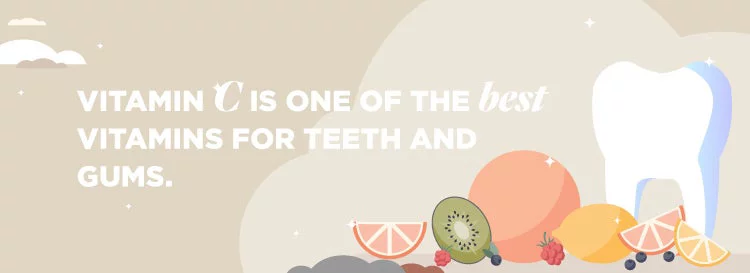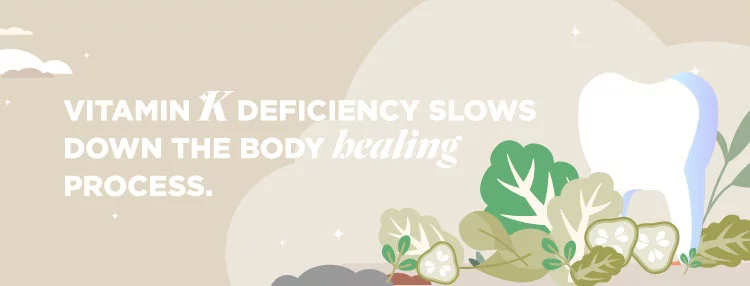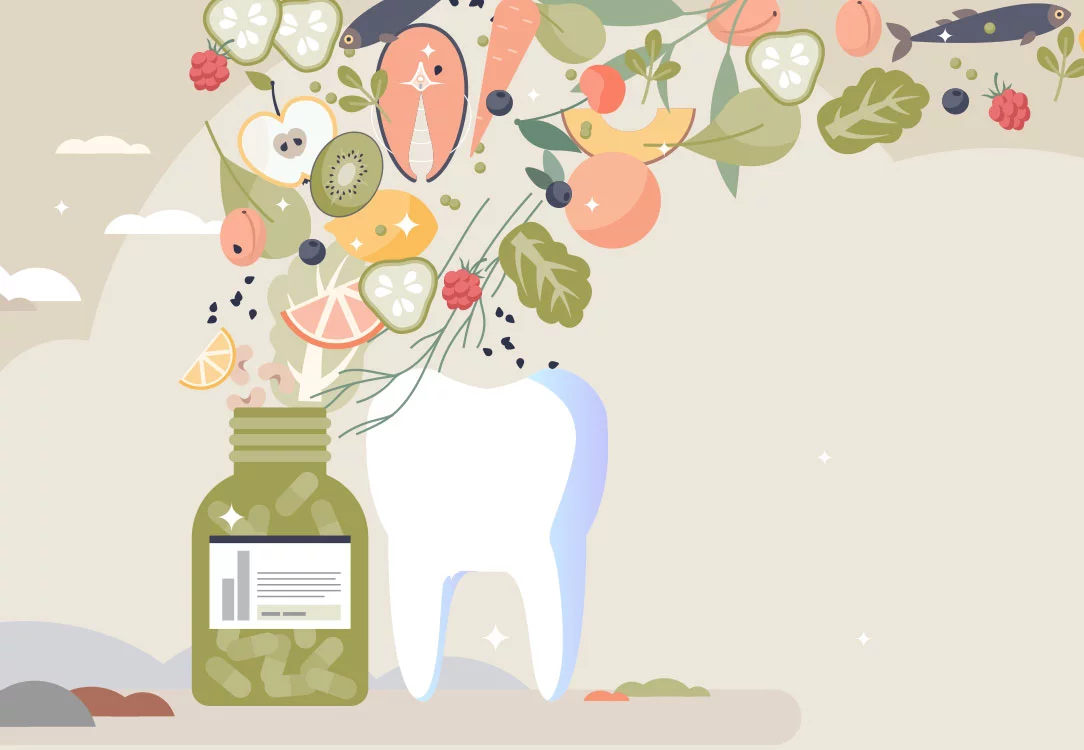But vitamins and minerals also benefit your oral health, including tooth decay prevention. The following is a list of minerals and vitamins for teeth and gum health.
Calcium
Calcium consumption is a terrific way to protect your teeth since it strengthens enamel. But when tooth enamel has a calcium deficiency, teeth become weaker. This condition is known as hypo calcification. A telltale sign of hypo calcification is seeing a calcium deposit on teeth. Enamel still covers the tooth, but a chalky or opaque spot – the calcium deposit – might be noticeable.
- milk
- cheese
- yogurt
- salmon
- broccoli
- carrots
Vitamin C
Vitamin C is critical to the growth, repair, and maintenance of teeth. It also helps hold your teeth in place and prevent them from loosening. Vitamin C plays a role in the collagen synthesis process in tooth dentin.
- berries
- broccoli
- citrus fruits
- kale, peppers
- sweet potatoes

Vitamin D
Vitamin D plays an important role when it comes to overall tooth health. A lack of vitamin D can lead to mouth health issues like gum inflammation, cavities, and gum disease. That’s because vitamin D is critical to bone and tooth mineralization. It provides a boost to the body’s calcium absorption rate while also improving bone mineral density.
- fish such as mackerel, salmon, and tuna
- portobello mushrooms
- cheese
- soy milk, and other dairy products
Vitamin K2
Vitamin K2 is a form of vitamin K. It is the chemical compound menaquinone. Vitamin K2 is believed to play a role in cavity prevention. It is also believed to keep tooth enamel and dentin healthy.
- eggs
- chicken
- pork
- blue cheese
- hard cheeses like gouda and Swiss
Collagen
People tend to associate collagen with facial cosmetic improvements. But it can help teeth and gums too. Studies have shown that collagen ingestion indicates increased bone formation and bone degradation reduction while it also enhances gum thickness. So collagen supplements can negate receding gums.
Magnesium
- dark leafy veggies
- legumes
- nuts
- seeds
- whole grains
Zinc
Zinc provides numerous oral health benefits. One of the biggest is tooth decay prevention. It works to prevent demineralization while encouraging remineralization. Zinc reduces the risk of cavities and tooth decay. It also helps prevent gingivitis. Foods such as
- meat
- shellfish
- legumes
- nuts
- dairy products are good zinc sources
Vitamin B12
One sign of a vitamin B12 deficiency is mouth sores. The vitamin helps keep your nervous system healthy and makes red blood cells. Vitamin B12 deficiency is often associated with anemia. Mouth sores, also referred to as mouth ulcers, are a common symptom.
- red meat
- pork
- chicken liver
- fish
- dairy products

Vitamin K
- leafy greens
- including broccoli
- brussel sprouts
- collards
- kale
- parsley
- spinach
Phosphorus
- meat
- milk
- whole grains
- fish
- eggs
Find a Dentist Near Me
Consult your dentist to discuss any questions about the best vitamins and minerals for teeth and gums. You can also ask about the best supplements for gum health to take. Or, check out The Smile Generation to find a dentist near you for all your oral health needs. You can read patient reviews, peruse staff bios, and schedule an appointment online with a click of your mouse.
Find your trusted, local dentist today!
Sources
Christiano, Donna, Calcium Deposits and Your Teeth, Healthline, April 11, 2019, https://www.healthline.com/health/calcium-deposits-on-teeth#hypocalcification
5 Essential Vitamins for Teeth and Gum Health, Colgate, August 5, 2022, https://www.colgate.com/en-us/oral-health/nutrition-and-oral-health/5-essential-vitamins-for-teeth-and-gum-health#
Tabb, Dr. Deborah, How Vitamins and Minerals Affect Your Teeth, Bethesda Family Dentistry, https://bethesdafamilydentistry.com/how-vitamins-and-minerals-affect-your-teeth/
6 Vitamins and Minerals That Help Strengthen Teeth, Pronamel, https://www.pronamel.ca/healthy-living/six-vitamins-and-minerals-for-strong-enamel/
7 Vitamins and Minerals Your Mouth Needs, Delta Dental, January 18, 2022, https://www1.deltadentalins.com/wellness/nutrition/articles/vitamins-and-minerals.html
Could your mouth ulcers be due to a vitamin B12 deficiency? Coastal Smiles, June 5, 2020, https://coastalsmiles.com.au/vitamin-b12-deficiency/
Does Taking Vitamin K2 Benefit Your Oral Health? Colgate, March 25, 2022, https://www.colgate.com/en-us/oral-health/nutrition-and-oral-health/what-to-know-about-vitamin-k2-benefits-for-teeth#
Use Vitamin K2 to Remineralize Your Teeth, Dr. Steven Lin, https://www.drstevenlin.com/vitamin-k2-remineralize-teeth/
Magnesium: A Neglected Mineral Our Teeth & Bones Cannot Live Without, Dr. Francis A. Bertolini, DDS, January 10, 2021, https://northcantonsmiles.com/magnesium/
Is Zinc Good for Your Teeth? Here’s What Dentists Have to Say, Icon Dental Center, https://icondentalcenter.com/is-zinc-good-for-your-teeth-heres-what-dentists-have-to-say/
West, Helen, RD, the 10 Best Foods That Are High in Zinc, Healthline, April 19, 2018, https://www.healthline.com/nutrition/best-foods-high-in-zinc
Konig, Daniel et al, Specific Collagen Peptides Improve Bone Mineral Density and Bone Markers in Postmenopausal Women-A Randomized Controlled Study, National Library of Medicine, January 16, 2018, https://pubmed.ncbi.nlm.nih.gov/29337906/
Schlee, Markus, et al, Bovine pericardium based non-cross linked collagen matrix for successful root coverage, a clinical study in human, National Library of Medicine, March 5, 2012, https://pubmed.ncbi.nlm.nih.gov/22390875
Smile Generation blog articles are reviewed by a licensed dental professional before publishing. However, we present this information for educational purposes only with the intent to promote readers’ understanding of oral health and oral healthcare treatment options and technology. We do not intend for our blog content to substitute for professional dental care and clinical advice, diagnosis, or treatment planning provided by a licensed dental professional. Smile Generation always recommends seeking the advice of a dentist, physician, or other licensed healthcare professional for a dental or medical condition or treatment.








